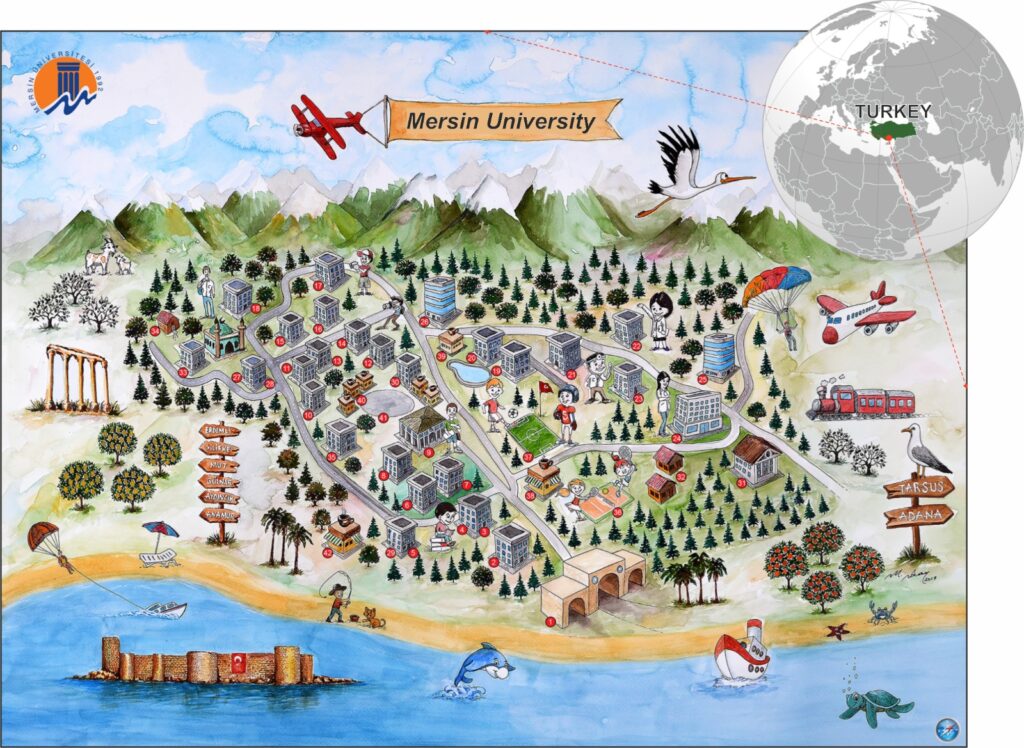History

Mersin University was founded under Law No. 3837, adopted by the Turkish Grand National Assembly on 3 July 1992, and officially commenced its academic activities on 10 November 1992. Since its inception, the university has made remarkable progress, expanding to encompass 20 faculties, 8 colleges, 11 vocational schools, 5 institutes, and 40 research centers. Mersin University is dedicated to meeting the needs and aspirations of society by delivering high-quality education and training across a wide range of disciplines. Fueled by its internal dynamism, commitment to educational excellence, and an ever-evolving strategy, Mersin University has earned recognition as one of Turkey’s leading and most reputable universities.
Mersin University boasts modern campuses designed with a focus on comfort, health, distinctive architectural aesthetics, and environmentally friendly settings. The university provides sports and research centers, strategically located within the city center and other towns, to serve both students and academic staff. Notably, the Çiftlikköy Campus is situated amidst a lush forested area within the city center. The main campus covers a total area of 4,491,347 square meters, with a 2023 population of 51,476 (regular/online student and staff). This results in a spacious living environment, offering approximately 95 square meters of campus area per capita.
Mersin University is a state institution that aspires to achieve international recognition and prominence in the fields of education, research, and social awareness. Operating under the framework of a “Sustainable Environmental Policy,” the university continually invests in research, development, and improvements to become a premier educational institution in environmental awareness and sustainability. To this end, Mersin University has embraced the concepts of a “Sustainable Environment” and a “Green Campus.” It has initiated various practices on its campuses to align with national and international standards. Research and improvement efforts are ongoing across several key areas, including Campus Settings and Infrastructure, Energy and Climate Change, Water and Waste Management, Transportation, and Education and Research. These initiatives reflect global solutions applied to environmental challenges faced by university campuses.
Mersin University strives for leadership on both national and international stages in the realm of ‘Environment and Sustainability.’ The university aims to heighten public awareness by sharing these initiatives and practices with the wider community. In 2020, Mersin University proudly joined the esteemed ‘GreenMetric International World University Rankings’ as part of the UI GreenMetric World University Rankings System. This platform actively fosters global awareness and internationalization of environmental and sustainability concerns. Annually, universities worldwide undergo comprehensive evaluations across categories including infrastructure, energy, climate change, waste management, water resources, transportation, education, and research. These assessments are meticulously conducted by experts from the University of Indonesia.
Mersin University’s strategic objectives are meticulously outlined in this Sustainability Report, underscoring the university’s unwavering commitment to effectively implementing these goals.
